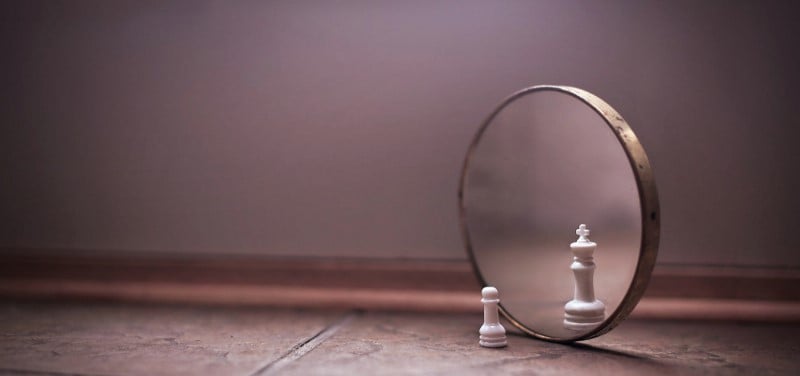From our earliest days as a species we have used violence against innocent (or random) victims to establish difference. Social crises produce undifferentiation, we are all alike and need to be differentiated. The victim is the first ‘difference.’ It is from the victim that we establish difference, the difference between up and down, in and out, us and them. The victim is the place we learn how to ‘other’ the other.
In the Eucharist we come as a killing mob, breaking our victims in order to consume them, to suck the life-force out of them to become them. This is why victims were eventually divinized or made into gods. We sought divine life, eternal life in our victims, life beyond death. In our victims we thought we found the answer to our questions, the solution to our problems. In their death we sought life, in the darkness we brought upon them we sought light. Little did we know that the light within us was a great darkness and that the violence we used against our victims could and would one day turn against us.
So, in breaking the bread, we confess we are murderers. We ignore Jesus as the goats ignore the marginalized. Better that they should die than be a drain on our culture. Like the religious and political authorities did to Jesus, we demonize our victims so that in disposing of them we need not feel guilty. Yet, we are most guilty.
Had Jesus been like many victims (or victims families) he would have sought revenge. How many times have you read in a news report about someone being killed and the family calling for justice? How many times have you read or heard others say that someone who committed a criminal act ‘got what they deserved?’ Retaliation, eye for eye, lex talionis, is the way we humans do justice. This is the voice of Abel crying out from the ground for vengeance. “Cain bombed my city and killed innocent me, O God, now kill him to balance the books of the universe.” We hear this voice in many of the Psalms where the singer, who is persecuted, cries out for revenge.
Yet, when we take the cup to drink the blood of our Victim, Jesus, Son of God, True Human, Lord of the Universe, is it revenge we hear? No, it is the cup of forgiveness. In his blood we find only forgiveness. There is no hint of revenge either now or in the future. All revenge or retaliation by God is forever forsworn. As the writer to Hebrews says, “Jesus’ blood speaks a better word than that of Abel’s.” Jesus blood does not cry out for justice, his blood cries out for mercy. The one who taught that we ought to “bless those who persecute us” does indeed bless us with forgiveness when we acknowledge our scapegoating ways and when we, in drinking the cup, refuse to be retaliators when we have been wronged. This cup of forgiveness is not just a cup whereby we walk away feeling better and then complain about others or remember our grudges against others. When we put this cup to our lips, we are not only forgiven for what we have done to others but we also acknowledge that others who have hurt us are forgiven as well. God treats us all alike, as forgiven murderers. When we drink this cup we drink forgiveness to the dregs and that forgiveness pours out of life to others. The one shares in this meal has no enemies. If one walks away from this meal and still holds a grudge or is unwilling to forgive, then, and only then, do they ‘drink and eat damnation to themselves’ for they are not willing to do as Jesus did and leave transgressions behind.
We have all been victims. In the late twentieth century being a victim has become a status symbol. It is much harder to recognize that we are all killers, murderers with our words, thoughts and actions against those we have deemed ‘other’ or sinful or less worthy than ourselves. This is why we first break the bread and then secondly, drink the cup. It is not the other way around. The Eucharist meets our deepest needs. It meets us in the darkest places in our souls, the place where we would consign ‘the other’ to an eternal hellfire or a life of hell. It liberates all of our victims from the hell we put them in. It calls us to recognize that “with the measure we judge others, we judge ourselves.”














